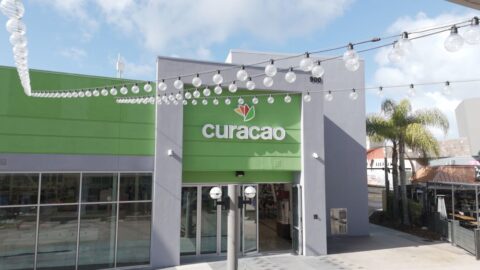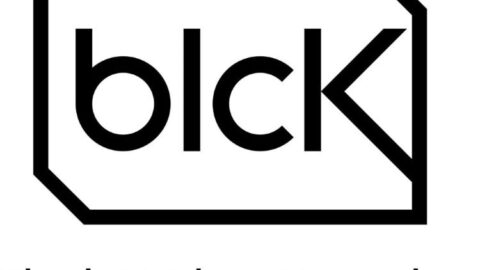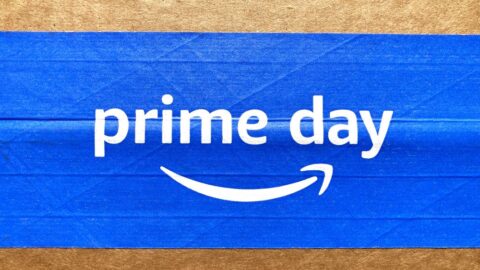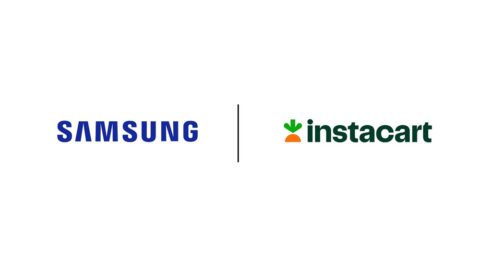With more than 180,000 attendees, 4,500 exhibitors and 3,000 product launches, CES (formerly known as the Consumer Electronics Show) brings out the best technology retailers can look forward to experimenting with in the coming year. But this year, two China-based retailers stood out for their innovations displayed throughout the event.
JD.com showcased one of its autonomous “smart delivery stations” that are currently deployed in the cities of Changsha and Hohhot, while Suning unveiled its Magic Runway, an AR-powered virtual shopping technology designed to enable shoppers to try on different outfits using simple motion gestures.
Additionally, Samsung delivered a robotic in-store shopper assistant, while L’Oréal and Procter & Gamble showed that the intertwining of beauty and technology is just beginning.
JD.com Demos ‘Boundaryless Retail’ With Autonomous Delivery Bots, VR ‘Drones’
The JD.com delivery stations are currently carrying out R&D, testing and personnel training to solve last mile issues. The delivery robots can be loaded with up to 30 parcels or packages before autonomously delivering them to consumers’ doorsteps within a five-kilometer radius. The delivery bots employ facial recognition technology that gives the user easy and secure access to their package.
The e-Commerce giant also showcased its drone delivery capabilities. Visitors will be able to see first-hand how JD.com’s drones deliver goods using a VR headset, while also catching a glimpse of its fully automated warehouses.
Collectively, JD.com’s innovations are designed to realize the company’s “Boundaryless Retail” vision, in which consumers can buy whatever they want, whenever and wherever they want it.
Suning Showcases Store Of The Future With Magic Runway, ‘Intelligent Vending Machine’
While technologies similar to the Suning Magic Runway have been deployed at Neiman Marcus and Sephora in recent years, the Suning experience also includes a smart stylist function that can detect a customer’s gender and age and provide outfit recommendations.
Suning also unveiled a heat map based on thermal analysis to study passenger traffic flow in stores. This technology is designed to help store managers and operators learn about customer habits and preferences, resulting in improved efficiency and merchandise management.
Suning also showcased what it calls an “intelligent vending machine,” the Biu Robot. The AI-powered bot is based on facial recognition and can cruise within a certain range of any retail venue carrying goods for shoppers to look at and pick up. The robot uses weight recognition to determine which products customers pick up, and shoppers can pay by simply scanning the robot’s QR code.
The presence of both Suning and JD.com at CES does raise questions about the future of each company in the U.S., and whether either retailer has plans to enter the market. JD.com does work with U.S. brands to sell their products and get them shipped into the Chinese market, but the platform is not available as a retail option in the U.S. Suning operates a Silicon Valley R&D center specializing in applied AI and big data, and partners with U.S. brands to help sell products in Asia, but does not sell its products in the U.S.
Samsung Bot Takes Payments, Serves As Shopper Assistant
Of course, the two Chinese retail powerhouses weren’t the only companies offering retail technology that may prove useful in 2019. For example, while Samsung displayed innovations for televisions, cars, gaming and entertainment, the technology giant also unveiled the Samsung Bot lineup, with one specifically designed for retail and quick service.
Samsung Bot Retail is designed to streamline ordering and payments in-store. When a shopper wants to pay, they just have to tap their phone on the robot. The bot also provides customer support functions, helping shoppers find products in-store, compare alternatives and offer product recommendations.
L’Oréal, Procter & Gamble Continue To Integrate Beauty And Technology
Even beauty brands are getting in the mix, further establishing that there is a future for the combination of beauty retailing and tech. L’Oréal unveiled a wearable adhesive skin sensor that tracks skin pH in real time. The device, My Skin Track pH, captures small amounts of sweat from skin pores to give an accurate acidity reading on a dedicated mobile app within 15 minutes. The tech will be available at dermatologists’ offices in Q3 2019, according to Guive Balooch, the head of the company’s tech incubator. Eventually the product may be sold directly to consumers, but no timeline has been set.
Procter & Gamble unveiled its SK-II Future X Smart Store at CES, which provides shoppers with an AI-driven personalized beauty experience. The journey begins with “The Art of You”: with facial recognition technology scanning a shopper’s skin to determine recommended products. Shoppers will get results based on five key metrics: radiance, spot control, firmness, wrinkle resilience and texture.
The skin analysis translates into a personalized product browsing experience via a responsive digital interface at the Smart Beauty Bar. If visitors wish to purchase products, they can head to a unique projection mapping table that tracks their hand motions and allows them to add products into their digital shopping cart with a simple hand wave.












